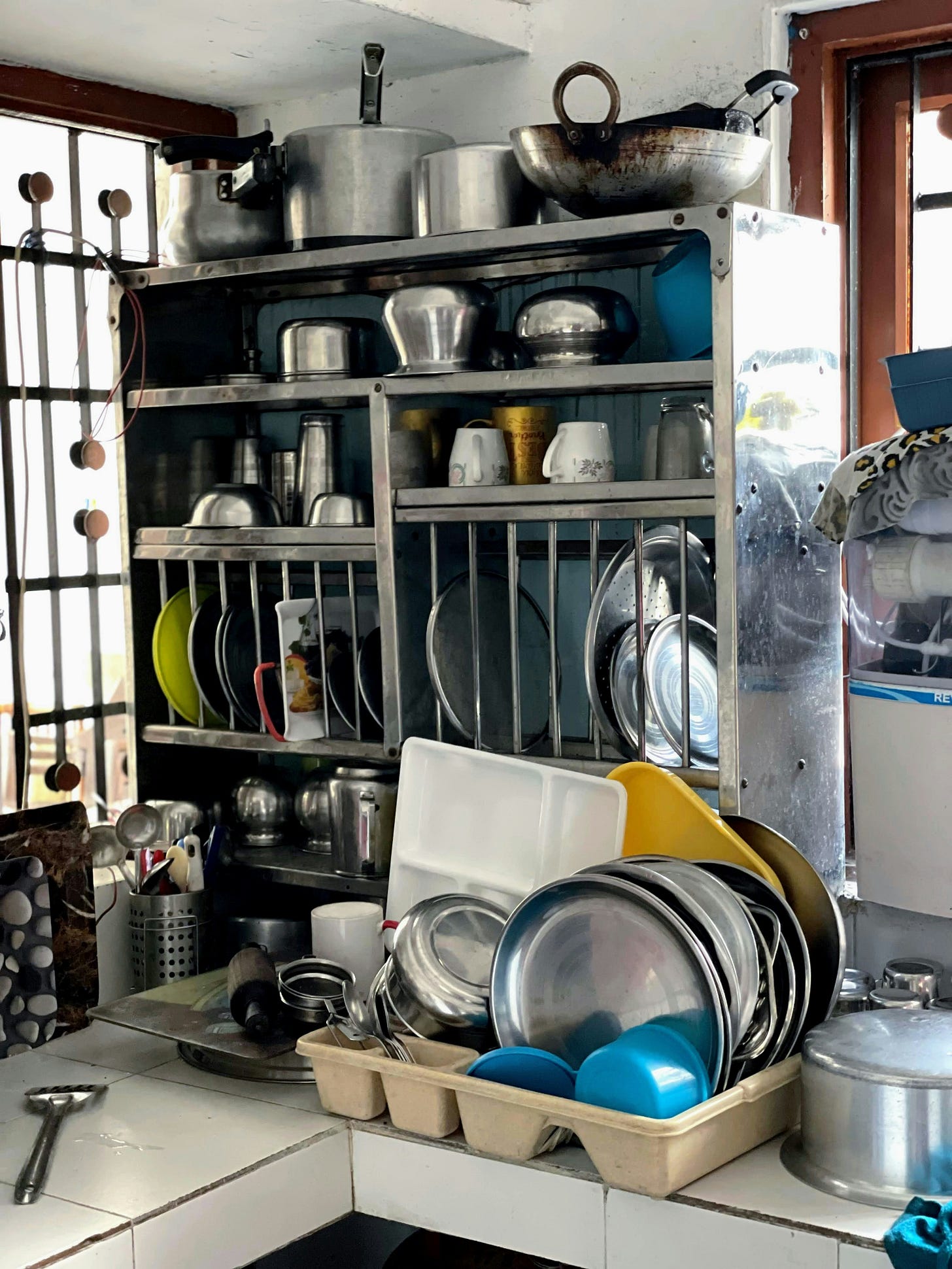What We Keep, What Keeps Us
The middle-class religion of accumulation
The Indian middle-class home is rarely minimalist. It is a museum of accumulation – steel dabbas that once held ghee, wedding saris folded away in plastic covers, mixer-grinders that no longer work but “might be repaired someday.” Boxes inside bigger boxes, charger cables without devices, single earrings whose partners vanished long ago. Every cupboard has its own archaeology.
It is tempting to call this hoarding, but that word feels cruel. Because in these things is more than clutter – there is history, aspiration, and longing. The middle class lives perched on a narrow ledge, always afraid of slipping downwards. Every object becomes both insurance and armour: proof that we’ve made it this far, and a hedge against the possibility of losing it all.
The compulsion to keep is layered, inherited, and deeply human. We keep because we fear, we keep because we dream, we keep because we must.
Scarcity and Survival
Our relationship with things is stitched with scarcity. Families who saved for years to buy a fridge will not discard it easily, even when it no longer cools. Clothes bought for Diwali are too sacred to throw away, even after decades. Letting go feels like betrayal – of the effort, the sacrifice, the version of us who once celebrated owning it.
Aspiration and Display
Some things, though, are kept not for need but for status. The expensive sofa no one is allowed to sit on. The crockery reserved “for guests.” The car seats still wrapped in plastic. Objects become symbols of aspiration – proof not just of survival, but of climbing.
Inheritance and Guilt
Then there are things passed down. Parents and grandparents who lived through scarcity hand over cupboards of saris, utensils, and unopened boxes, along with the guilt of discarding them. Generations inherit not just objects but the anxiety of keeping them. To throw something away feels like erasing history.
Morality and Respectability
Beyond fear and memory lies morality. It is this burden of middle-class morality – that quiet tyranny Alfred Doolittle once railed against – where respectability itself is a possession, guarded as fiercely as any piece of jewellery. To waste feels immoral. To want too much feels immoral. To not preserve what you already have feels immoral. And so we preserve everything – every plastic bag, every gift box, every appliance that once worked, every sari that might someday find an occasion again.
Control, Pride, and Shame
Finally, clutter is also about control. In an uncertain world, things become anchors – proof that at least something can be held onto. The same home that hoards with one hand is polished with the other, presenting order to outsiders while concealing chaos behind cupboards. Pride and shame coexist here – pride in having, shame in having too much.
The Weight of Things
All of this adds up. Homes turn into warehouses of “just in case.” Shelves sag under the burden of futures that never come. And slowly, the things begin to own us: shaping our rooms, narrowing our movements, demanding their share of our air.
And yet, it is hard to judge. In every saved polythene bag and every reused Kissan jar is a story of thrift, resilience, and vigilance against downward mobility. In every act of saving, a small assertion of control. A way of saying: nothing will go to waste, not even me.
To be middle class is to live with this paradox – of longing for freedom from clutter, yet being bound to things that once symbolised survival, morality, aspiration, and dignity.
So perhaps the question is not why we hoard, but what we fear will vanish if we don’t: the object itself, or the fragile proof that we once climbed and managed not to slip.


